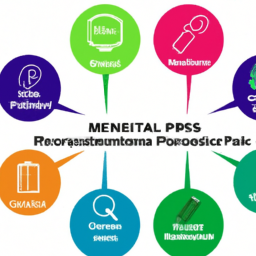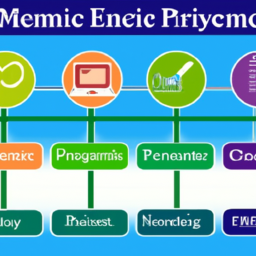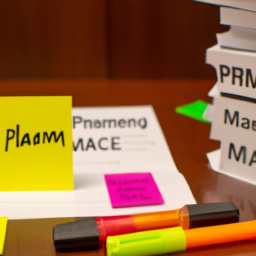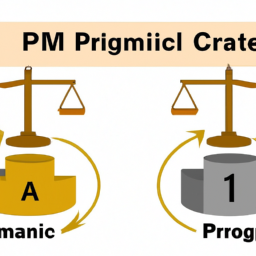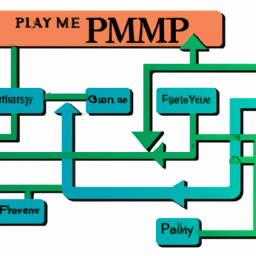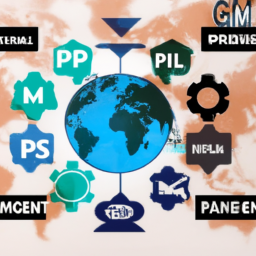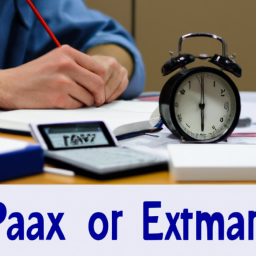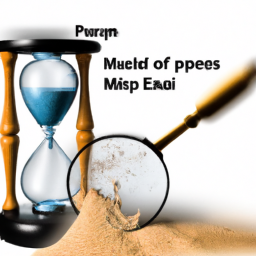Are you ready to dive into the world of project management?
The PMP exam, hailed as the gold standard in the industry, has been surrounded by a whirlwind of hype. But is it truly worth all the fuss?
In this article, we will provide you with a comprehensive overview of the PMP exam, debunk common myths, and explore the benefits of obtaining a PMP certification.
Get ready to uncover the truth and decide for yourself if the PMP exam lives up to its reputation.
Key Takeaways
- The PMP Exam is considered the gold standard in project management.
- Thorough PMP exam preparation is essential, including studying the PMBOK Guide and practicing with sample questions.
- PMP certification enhances career prospects and opens up new opportunities.
- PMP-certified professionals often earn higher salaries compared to non-certified counterparts.
The PMP Exam: A Comprehensive Overview
If you’re considering taking the PMP Exam, you’re probably wondering what it entails and if it’s really worth all the hype.
The PMP Exam is a rigorous assessment designed to evaluate your project management knowledge and skills. It covers a wide range of topics, including project initiation, planning, execution, monitoring, and closing.
To prepare for the exam, it is essential to engage in thorough PMP exam preparation, which includes studying the PMBOK Guide, attending training courses, and practicing with sample questions.
The passing rate for the PMP Exam is around 60-70%, which may seem challenging. However, achieving PMP certification can open doors to new career opportunities, increased job prospects, and higher earning potential.
Therefore, while the PMP Exam requires dedication and effort, it is undoubtedly worth the investment if you aim to excel in the field of project management.
Understanding the PMP Exam Structure and Content
Understanding the structure and content of the PMP exam can greatly contribute to your success. This analytical and precise exam is designed to test your knowledge and skills in project management. Here is what you need to know about the PMP exam format and its difficulty:
- The PMP exam consists of 200 multiple-choice questions.
- The questions are based on the Project Management Body of Knowledge (PMBOK) Guide.
- The exam covers five key domains: Initiating, Planning, Executing, Monitoring and Controlling, and Closing.
- Each domain has a specific percentage of questions, reflecting its importance in project management.
- The difficulty of the PMP exam lies in its comprehensive coverage of project management concepts, tools, and techniques.
Preparing for the PMP exam requires dedication and a deep understanding of project management principles. However, with the right study materials and practice, you can overcome its difficulty and achieve success.
The Benefits of Obtaining a PMP Certification
Gaining a PMP certification can greatly enhance your career prospects and open up new opportunities. The benefits of obtaining a PMP certification extend beyond just adding a credential to your resume. It is a testament to your skills and knowledge in project management, which is highly valued in today’s competitive job market.
By earning a PMP certification, you demonstrate your commitment to excellence and continuous improvement in managing projects. This level of dedication is highly sought after by employers, leading to increased career advancement opportunities. Additionally, the PMP certification is widely recognized and respected in the industry, providing you with a competitive edge over your peers.
To further illustrate the benefits, here is a table showcasing the advantages of obtaining a PMP certification:
| Benefits | Explanation |
|---|---|
| Career Advancement | PMP certification boosts your credibility and increases your chances of promotion. |
| Industry Recognition | PMP certification is globally recognized and respected, enhancing your professional reputation. |
| Higher Salary | PMP-certified professionals often earn higher salaries compared to their non-certified counterparts. |
Debunking Common Myths About the PMP Exam
There are several common myths about the PMP exam that need to be debunked. To help you prepare for the exam and make informed decisions, let’s clear up these misconceptions:
-
Myth 1: The PMP exam is too difficult to pass. While it is a challenging exam, with the right preparation strategies and study materials, you can succeed.
-
Myth 2: Experience is not necessary for the exam. On the contrary, the PMP exam requires a certain level of project management experience, as it tests your ability to apply theoretical knowledge in real-world scenarios.
-
Myth 3: The PMP exam is all about memorization. While you do need to understand key concepts and knowledge areas, the exam also evaluates your ability to analyze and apply project management principles.
-
Myth 4: Passing the PMP exam guarantees a job or promotion. While the certification can enhance your career prospects, it is not a guarantee. Other factors, such as experience and skills, also play a crucial role.
-
Myth 5: You can pass the PMP exam without investing time and effort. Like any other professional certification, dedicated time and effort are required to prepare effectively and increase your chances of success.
Now that we have debunked these myths, let’s explore whether the PMP exam is truly worth the time and effort.
Is the PMP Exam Worth the Time and Effort?
Now that we’ve debunked the myths, let’s determine if the PMP exam is truly worth your time and effort.
The PMP certification is recognized globally and can significantly boost your career prospects. However, it requires a significant time commitment to prepare for and pass the exam. It typically takes around 200-300 hours of study to adequately cover all the material and practice exam questions.
While this may seem daunting, the benefits outweigh the investment. The PMP certification demonstrates your expertise in project management and can open doors to higher-paying positions and increased job opportunities.
Employers often prioritize candidates with PMP certification, as it signifies their ability to lead and manage complex projects successfully.
Frequently Asked Questions
What Are the Eligibility Requirements to Take the PMP Exam?
To be eligible to take the PMP exam, you must have a secondary degree, such as a high school diploma, and at least five years of project management experience, with 7,500 hours leading and directing projects.
Alternatively, if you have a four-year degree, you need a minimum of three years of project management experience, with 4,500 hours leading and directing projects.
To prepare for the PMP exam, there are various resources available, including study guides, practice exams, and online courses.
How Long Is the PMP Exam and How Many Questions Are There?
The PMP exam duration is four hours. During this time, you will need to answer 200 multiple-choice questions.
These questions cover various project management topics and assess your understanding of key concepts, processes, and best practices.
The exam is designed to test your knowledge, skills, and abilities in managing projects effectively.
Are There Any Prerequisites or Recommended Experience Before Attempting the PMP Exam?
Before attempting the PMP exam, you may be wondering about prerequisites or recommended experience. Well, let’s break it down for you.
The PMP certification does have some prerequisites, but fear not, they are not as daunting as climbing Mount Everest. You’ll need a high school diploma, a minimum of 35 hours of project management education, and some experience leading projects.
As for recommended experience, the PMI suggests having at least 3 years of project management experience.
What Is the Passing Score for the PMP Exam?
The passing score for the PMP exam is not disclosed by the Project Management Institute (PMI). They use a complex scoring system that takes into account the difficulty level of each question. This ensures that the passing score reflects the candidate’s overall performance and knowledge.
The PMP exam is known for its high level of difficulty, and it requires thorough preparation and study. Achieving a passing score demonstrates your proficiency in project management and can enhance your career opportunities.
How Much Does It Cost to Take the PMP Exam?
The PMP exam fees vary depending on your membership status with the Project Management Institute (PMI). As a PMI member, the cost is $405, while non-members pay $555.
However, it’s worth noting that becoming a PMI member has its own costs, which is $129 annually. Additionally, there may be other expenses such as study materials or training courses.
Considering these costs, it’s important to weigh the potential benefits and career advancements that come with a PMP certification.
Conclusion
In conclusion, you’ve embarked on a journey through the maze of the PMP Exam. You’ve navigated its structure, content, and benefits. You’ve debunked the myths and pondered the worth of your time and effort.
Now, imagine yourself standing tall, clutching your hard-earned PMP certification. Feel the surge of pride and accomplishment, knowing that you’ve conquered the pinnacle of project management excellence.
The PMP Exam isn’t just hype; it’s a testament to your dedication, expertise, and potential for future success.


